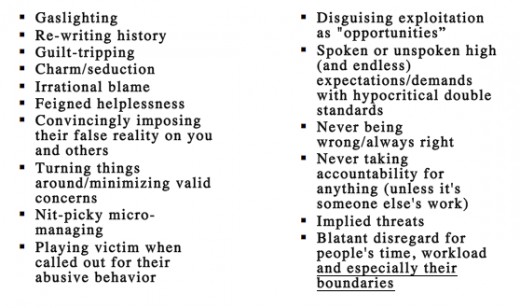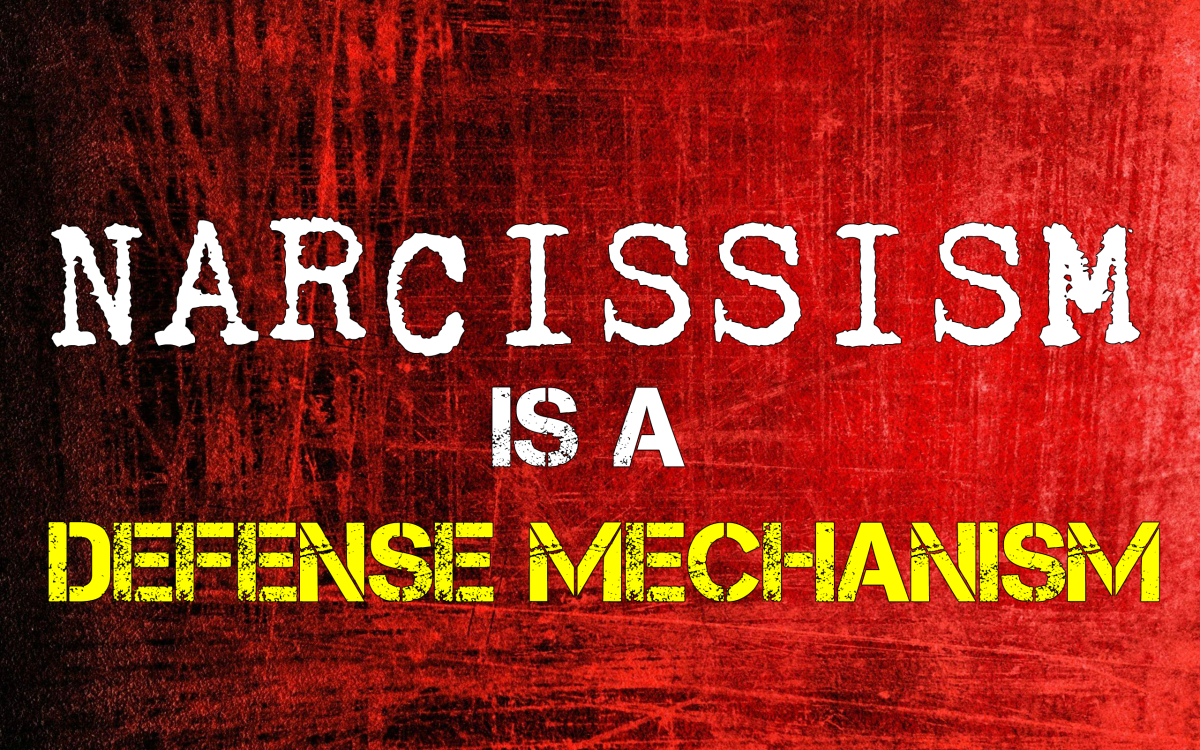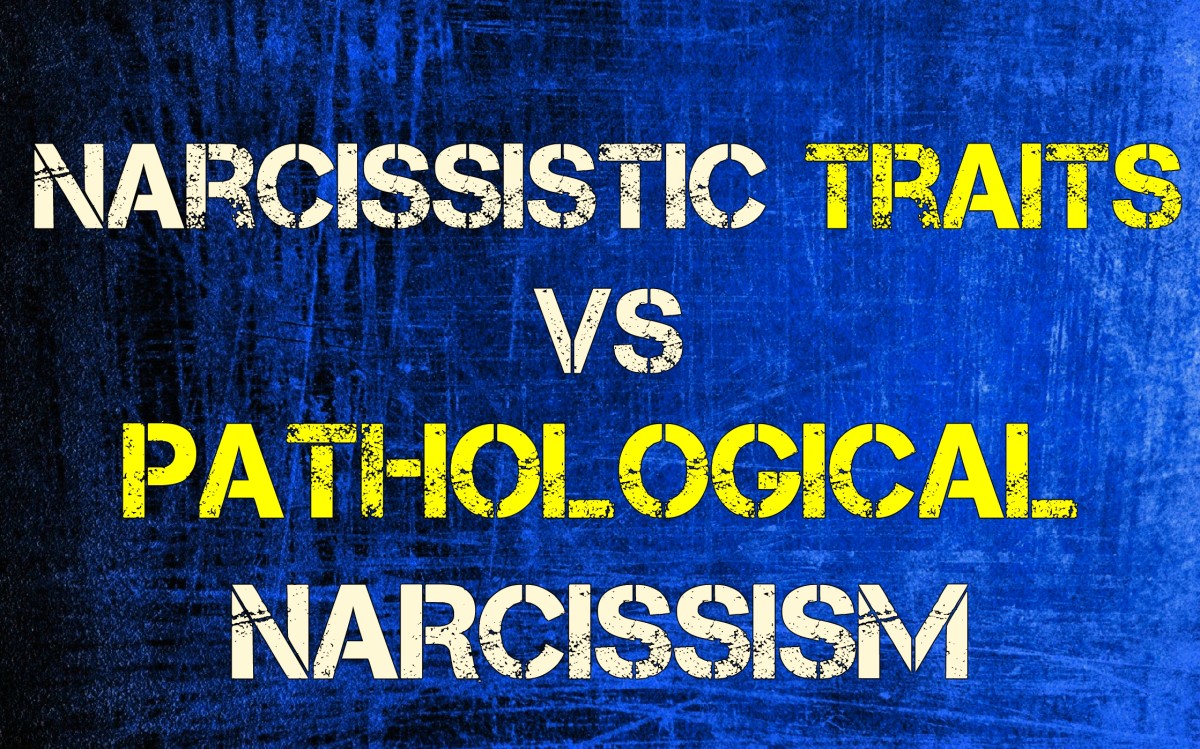TOXIC WORKPLACE - Spotting Hidden Abuse At Work, And What You Can Do About it

By Steve Stancato
There is a very real epidemic that most people know hardly anything about - but should. It is something that affects all areas of human relationships, including, and especially, the workplace (in any and all industries).
What is it? It is known as covert narcissistic abuse - a term you probably never heard of. Yet, the fact is, there are people out there, perhaps even YOU or someone you know, that are being cleverly manipulated, exploited, taken advantage of, and/or emotionally/psychologically abused at work AND NOT EVEN KNOW IT.
How could this be? One, of several reasons, is that many people have a very poor understanding of what narcissism is and link it only to "selfies" and vanity, or they may not even know that narcissistic personality disorder exists. However, anyone who has been through an insidious, parasitic relationship at work with an entitled and unscrupulous "taker" knows just how toxic and exhausting the narcissist can be (even if they have yet to understand what narcissism is). Additionally, the dynamic between the workplace narcissist and victim can remain unquestioned and sometimes viewed as "normal" in archaic work settings. For this article, the term "narcissist" will describe any functional but difficult person who has a higher-than-normal level of narcissistic traits to those that have narcissistic personality disorder.
While narcissism exists on a spectrum, and most people have healthy levels of narcissism, there could be the assistant, co-worker, client or boss that brings "being difficult," "catered to" or "crazy-making"" to a whole other level. At first, you may assume that the strict, firm person at work who enforces the rules could be the narcissist, and not even suspect the charming and well-liked person who gets you to do things you would not ordinarily do that are in their best interests (but not yours.) This is not your garden variety jerk or liar; this is much more serious than that.
There are several different "types" of narcissists - and the ones that are easier to spot are the OVERT narcissists - the disillusioned, haughty bullies to the slave-driving "Devil Wears Prada" type and more. This article focuses on the unsuspecting ones that fly under the radar -the covert narcissist. This abuse is most disturbing because it is very hard to prove and typically the only people who eventually spot it are the ones who experience it directly, those who are close to the narcissist. To the public eye, the covert narcissist may appear charismatic, selfless, innocent and benevolent as they secretly bring distress and chaos to those closest to them. Please note that the abuser does not abuse everyone they come in contact with, and outsiders who do not know any better can be easily fooled by their facade.
Narcissists, who are excellent liars (to themselves and others), tend to target intelligent, but highly empathetic individuals, who sometimes have the tendency to over-achieve, people please, or self-sacrifice. That's exactly who the narcissist wants around them - malleable, kind, "yes" people that exist to meet their needs and bottom line without much regard for the victims needs. The narcissist can view their victims as an extension of themselves vs. individuals with their own drives and goals.
Whether it's lower on the spectrum (people with higher narcissistic traits) or full blown malignant narcissism (narcissistic personality disorder or NPD), or whether the narcissist is consciously or unconsciously manipulating - the effects on those abused are detrimental across the board. Sadly, many have become used to thinking 'this is just the way things are in business' and can normalize unacceptable behavior if they do not know any better. The point of this article is to make sure you recognize the red flags.
RED FLAGS TO NOTICE - DOES ANY OF THIS HAPPEN TO YOU?
While all manipulation is covert/deceitful (and never the victim's fault), the covert workplace narcissist is particularly good at taking advantage and control of other's in a very subtle way. Even if you intuitively feel something is off or not right, their dishonest, self-serving, pervasive and predictable machinations of:

and the like, are enough to confuse and fool anyone. Their mind-boggling mind games can easily cloud the judgement of you and those around them, until you see the controlling/manipulating narcissist for what they are. Perhaps you have experienced the above on a regular basis at work and did not recognize that this is narcissistic abuse.
Keep in mind, what's listed above is just a shortlist of what's in the narcissist's behavioral wheelhouse. Other examples can range from jealous competition and vindictiveness to sexual and physical abuse. You may be complaining about your job and have no idea that you are dealing with someone who may have a personality disorder (who will never change)....until you educate yourself and learn to spot these tactics. It is important to note that we all can be guilty of being manipulative or dishonest at times; this article is about the disordered people (who appear normal and even likable) who are chronically and consistently this way.
WHAT CAN YOU DO WHEN YOU REALIZE YOU ARE WORKING WITH OR FOR A NARCISSIST?
It's vital to recognize and accept that narcissists do not operate like the rest of us, and confronting them or hoping they will change is pointless, ineffective and moot. They have a sickening gift of confidently manipulating the most sound and logical of perspectives in their favor.
Even if you were being abused at work and quit/change departments/end a contract as a direct consequence of their behavior, the narcissist will find a way to make you look like the "bad guy" and play victim to their sympathetic enablers, despite staggering facts, logic and evidence to the contrary. Just imagine, for example, the manager who continually delays or never delivers your discussed and long-overdue promotion or raise, while expecting loyalty and adding even more responsibilities to your already full plate. Or a chronically overly-critical client who is never pleased, which somehow gets you to work harder to satiate their insatiable demands. Unlike most people, a narcissist at work can make you feel like a burdensome "brat" or selfish person just for having legitimate boundaries, needs and your own preferences, even if they presume unquestioned and above-and-beyond support (and frequent overtime) from you. Because this is an imbalanced relationship, it is ultimately depleting and mentally or physically unhealthy for the workplace victim.
Psychologists who are experts in narcissism seem to have a consensus that dealing with a master manipulator (yes, even the "nice" covert ones) is never worth the trouble and ideally no contact / terminating the relationship is typically the best solution. However, when it comes to work - other factors, such as income and career goals, come into play, and finding ways to manage it and lower expectations becomes a temporary option as you plan your exit. Remember, lower spectrum narcissists often lack insight into how their negative behavior is affecting others. And pathological narcissists can be aware they are "pulling the wool" over their victim's eyes, but have little to no remorse for doing it, as long as they get what they want.
When it comes to narcissists, there is no such thing as "two sides of the story." Abuse is abuse, no matter how much they deny, project, "victim-blame,"minimize and distort. Even though many narcissists at work are often not criminals, an example of such distortion/denial tactics can easily be found on YouTube if you search criminals with narcissistic traits such as Jodi Arias, Ted Bundy, Diane Downs and Dalia Dippolitto who had the gall to proclaim innocence for the very apparent crimes/abuses they committed.
If you are in a situation where you are not feeling good about your work environment - take a closer look. Maybe it's not the job title, project or the company, but someone you are working with. If leaving your job is in your best interest, yet you struggle with"guilt" or feeling responsible for others at your own expense, that could potentially be another sign the narcissist conditioned your conscientiousness to place their needs, dreams and goals above yours. The good news is that once you can see the reality of your situation and leave it, you have the opportunity to heal, introspect, learn about boundaries, assertive communication, red flags and how to avoid these types of "energy vampires" moving forward.
Thankfully there is an emergence of articles posted on LinkedIn emphasizing and advocating for self awareness & empathy (which narcissists lack), healthy give and take, appropriate rewards/compensation and practices in the workplace that make it a win-win for all involved. It is my hope that this article has been informative and useful to anyone who may have experienced or is currently dealing with hidden narcissistic abuse at work.
This content is accurate and true to the best of the author’s knowledge and is not meant to substitute for formal and individualized advice from a qualified professional.
© 2019 Steve Stancato








